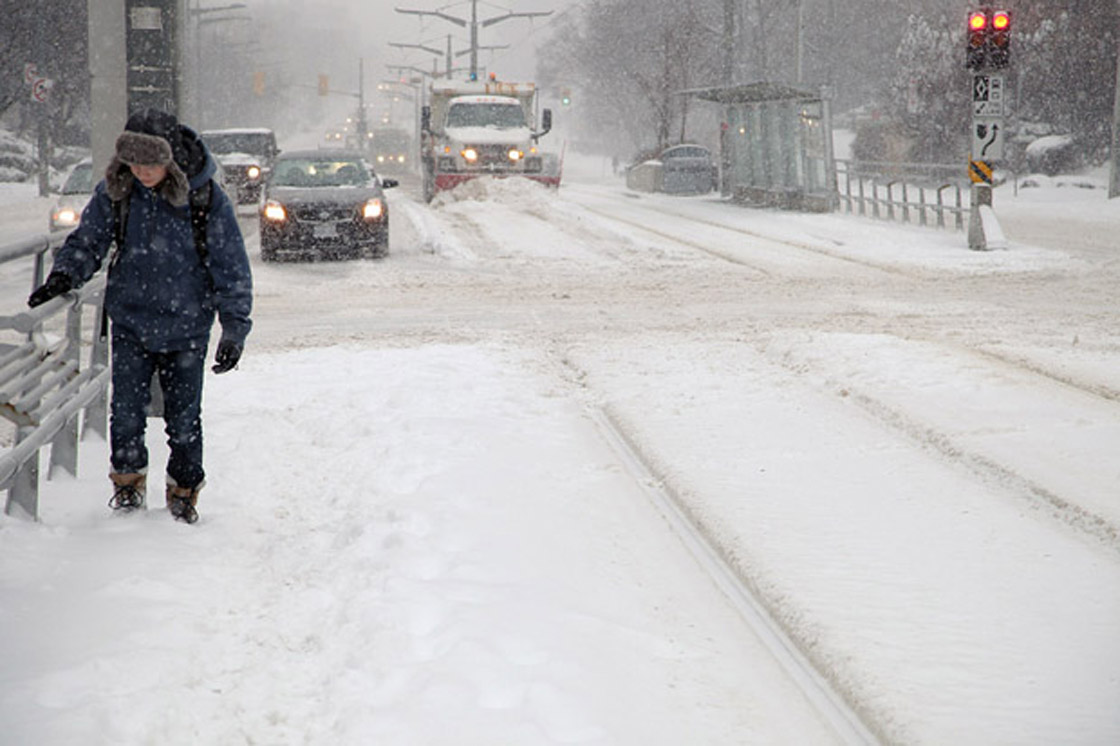TORONTO – Each winter, Gordon Hoddinott feels his days get shorter, and in turn his exercise levels and time outside declines.

The Lower Sackville, N.S. resident says his winter days are marred with too much time indoors, going from work to home in front of the television. On the other end of the spectrum is summertime and the gardening, golfing, and time outdoors that come along with the warmer months.
“Winter is a nuisance, right? You come home – five o’clock – you’re locked,” the Lower Sackville, N.S. resident said.
“I never cared for it…short days and nowhere to go. That’s it, nasty.”
He’s a healthy guy overall, watching his eating habits, but his family has a history of heart disease that’s affected his mother and even his two siblings.
But it was still a surprise when one frigid winter morning, he found himself standing on his driveway waiting for an ambulance.
He knew he was suffering from a heart attack during his regular morning routine.
“I was dressed, (boiling) the kettle, I just had my Corn Flakes, I was ready to go. Then the pain started and I could feel it, you know, like indigestion in my chest,” he said.
That crushing pain spread into his arms. He didn’t want to wait inside for the ambulance.
Winter in February varies in Canada from 10 C days in Vancouver to -20 C on the other end of the country in Halifax. With the cold season comes an increase in heart attacks, but researchers say that people in warmer locations aren’t any less vulnerable.
It’s well documented that heart attack deaths increase during the winter, but many attribute that to the cold temperatures. Turns out that may not be the case.

Get weekly health news
It’s not the temperatures that are deadly for your heart – it’s the shorter days, falling out of good habits and lack of exercise that brings our health and immune systems to our knees.
Heart attack risk spikes in the winter
Heart doctors at Los Angeles’ Good Samaritan Hospital looked into why heart risk is just as vulnerable in hot climates like Florida to chillier regions like Massachusetts in their research reported at the most recent American Heart Association conference.
Their research found that people are 26 to 36 per cent more likely to die from a heart attack, heart failure, or other heart diseases in the winter compared to the summer – but this had nothing to do with location.
There are a handful of factors at play that contribute to this increase in wintertime heart attacks, according to co-author Dr. Robert Kloner, Director of research at the Heart Institute of Good Samaritan Hospital.
The dip in temperatures makes blood vessels constrict, driving up your blood pressure. Your heart is forced to work overtime as your blood’s gateways narrow, decreasing blood flow.
Another “interesting phenomena” about winter is that the body’s blood itself thickens, making it more likely to clot when exposed to the cold.
Winter is also notorious for the flu season as influenzas and other bugs make their rounds through the population.
“We know that the flu can be bad for the heart because it increases the workload the heart has to deal with,” Kloner said. Evidence has suggested that some viruses directly affect your heart.
“Some people also think that the number of hours of light is important as you decrease the number of hours of light, that there’s brain/heart connection and that that might have some deleterious effects on the heart,” he told Global News.
In his research, Kloner and his co-author Dr. Bryan Schwartz, scoured 1.7 million death certificates from 2005 to 2007 in seven handpicked locations.
They ranged from the warm locales – Texas, Arizona and Georgia, to the moderate locales – Los Angeles and Washington State, and finally, the states that get slapped with frigid winters each year – Massachusetts and Pennsylvania.
All states studied had the same levels of heart attacks.
“What that suggests is that people acclimatize to the climate they’re in,” he explained.
Heart health doesn’t hibernate in the winter
While your exercise habits and healthy eating may be replaced with keeping warm indoors and indulging in hearty meals, Kloner reminds readers that your heart doesn’t take a break because of the cold.
He suggests that in the winter, patients should keep an eye on their chronic risk factors – cholesterol levels, blood pressure, smoking, weight management, stress levels and exercise.
“If you’re got symptoms you want to make sure that you seek medical help and not wait until the holidays are over,” he said.
As for Hoddinott, he now makes time to take walks, plans his meals with less meat and manage his health now that he’s a heart attack survivor.
“I watch what I’m doing. I’m a little more careful, I think, a little more nervous,” he said.
“Being a heart attack survivor, I think that’s going to be there forever.”
allison.vuchnich@globalnews.ca
carmen.chai@globalnews.ca






Comments